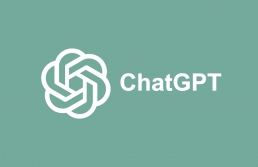Exploring the Power & Potential of ChatGPT
In today’s digital age, artificial intelligence (AI) has become an integral part of our lives, revolutionising various industries and enhancing human-machine interactions. One remarkable advancement in the field of AI is ChatGPT, an innovative language model developed by OpenAI. In this blog post, we will explore its capabilities, potential applications, and the impact it has on shaping the future of conversational AI.
What is ChatGPT?
ChatGPT is an AI language model that leverages deep learning techniques to generate human-like responses in a conversational manner. It is part of the GPT (Generative Pre-trained Transformer) family, which has made significant strides in natural language processing (NLP). Trained on massive amounts of text data, ChatGPT is designed to understand and generate coherent and contextually relevant responses, making it ideal for engaging in dynamic conversations.
Understanding the Architecture:
The underlying architecture of ChatGPT is built upon transformer models, which have proven to be highly effective in various NLP tasks. Transformers are neural networks that process input data by paying attention to different parts of the text, enabling the model to grasp the relationships and meaning between words and phrases. This attention mechanism allows ChatGPT to capture long-range dependencies and produce more coherent responses.
Training and Fine-Tuning:
Training ChatGPT involves pre-training and fine-tuning stages. During pre-training, the model learns from a large corpus of publicly available text from the internet. It familiarizes itself with sentence structures, grammar, and contextual cues. Fine-tuning is the subsequent stage, where the model is further trained on more specific data, including demonstrations and comparisons, to refine its responses and ensure a more controlled output.
Applications of ChatGPT:
ChatGPT has a wide range of applications across multiple domains. Here are a few notable examples:
1. Customer Support: ChatGPT can be employed as a virtual assistant, capable of understanding and addressing customer queries in real-time. It enables businesses to provide instant and personalized support, enhancing customer satisfaction and streamlining operations.
2. Content Creation: Writers, bloggers, and content creators can leverage ChatGPT as an AI writing companion. It assists in generating ideas, refining drafts, and offering creative suggestions, thereby boosting productivity and overcoming writer’s block.
3. Language Learning: ChatGPT can serve as an interactive language tutor, engaging learners in conversations, providing contextual explanations, and facilitating language practice. It adapts to individual learning styles and can offer tailored guidance to learners of various proficiency levels.
4. Personalized Recommendations: By understanding user preferences and historical data, ChatGPT can offer personalized recommendations for products, movies, books, and more. This enhances the user experience and helps businesses cater to individual needs effectively.
The Ethical Considerations:
As with any AI technology, there are ethical considerations to address. ChatGPT’s responses are based on patterns learned from its training data, and it may inadvertently exhibit biases or generate inappropriate content. OpenAI acknowledges these challenges and strives for ongoing improvements to mitigate such issues through research, community engagement, and feedback mechanisms.
Conclusion:
ChatGPT represents a significant milestone in conversational AI, pushing the boundaries of human-machine interaction. Its ability to understand and generate human-like responses opens up numerous opportunities for enhanced customer experiences, creative collaborations, and personalized assistance. While challenges remain, the continuous advancements in the field, coupled with responsible development practices, ensure that ChatGPT will continue to shape the future of conversational AI, making interactions with machines more seamless and natural than ever before.
The Future of Artificial Intelligence: Trends & Predictions
Artificial Intelligence (AI) has become one of the most transformative and disruptive technologies in recent years, with the potential to revolutionise virtually every aspect of human life. From autonomous cars and smart homes to personalised medicine and predictive maintenance, AI is already changing the way we live and work.
Here are just some of the latest trends and predictions for the future of artificial intelligence.
NLP
The Language of the Future Natural Language Processing (NLP) is not just for language geeks anymore. AI algorithms can now understand and interpret human language better than ever before. In the future, we might be chatting with bots that understand our jokes, our sarcasm, and our emotions. Imagine Siri or Alexa telling you a joke that actually makes you laugh out loud.
Doctor AI
The Health Revolution Gone are the days of relying solely on human doctors for medical advice. AI-powered diagnostic tools can now help identify diseases and make accurate diagnoses. In the future, we might even see robots performing surgeries and delivering personalized medicine. Just make sure you don’t accidentally confuse your doctor with your Roomba!
Doctor AI
Explainable AI: The Secret Decoder Ring Ever wonder what goes on inside an AI system? With Explainable AI (XAI), we can finally understand how AI systems make decisions. In the future, we might even see AI systems that can explain their actions in plain English (or any other language). No more confusion or suspicion, just clear and straightforward answers.
Doctor AI
Smart Learning: School of the Future AI-powered education is no longer a dream but a reality. With personalized learning experiences and intelligent tutoring systems, students can now learn at their own pace and level. In the future, we might even see virtual assistants that help students with homework and study tips. No more nagging parents or teachers, just a friendly AI tutor.
Doctor AI
Autonomous AI: The Rise of the Machines The Terminator might be closer than we think! Autonomous AI systems are already making waves in industries such as transportation, manufacturing, and logistics. In the future, we might see self-driving cars, drones, and even robots that can perform tasks without human intervention. Just don’t forget to charge your robot army before they take over the world!
Doctor AI
AI + Emerging Tech: A Match Made in Heaven AI is not the only hot technology in town. AI is already being integrated with other emerging technologies such as blockchain, edge computing, and the Internet of Things (IoT). In the future, we might see AI-powered smart homes that can adjust to our preferences automatically or even AI robots that can help with household chores (please, sign me up!).

8 Websites That Will Teach You Code For Free
Learning to code is a valuable skill in today’s digital age. Whether you’re interested in building websites, developing mobile apps, or creating software programs, coding skills can open up a wide range of career opportunities.
Fortunately, there are many resources available online that offer free coding courses and blogs to help you learn how to code. Here are some popular options:
Codecademy
Codecademy is an interactive online learning platform that offers a wide range of free and paid coding courses.
The platform is designed to help beginners learn to code and advance their skills in various programming languages, including HTML, CSS, JavaScript, Python, Ruby, and more.
Codecademy’s courses are interactive, allowing students to practice coding in a real-time environment and receive immediate feedback on their progress. The platform also provides quizzes and projects to help students test their knowledge and apply what they’ve learned.
Additionally, Codecademy offers a pro version that includes access to more advanced courses and features, as well as personalised feedback and support from a dedicated advisor.
FreeCodeCamp
FreeCodeCamp offers a comprehensive curriculum for full-stack web development, including HTML, CSS, JavaScript, and more. They also have a blog with articles on coding and technology.
Udacity
Udacity offers many free coding courses in various programming languages, including HTML, CSS, JavaScript, Python, and more. They also have a blog with articles on coding and technology.
edX
edX offers free online courses from top universities, including many coding courses in various programming languages. They also have a blog with articles on coding and technology.
Coursera
Coursera offers free coding courses from top universities, including HTML, CSS, JavaScript, Python, and more. They also have a blog with articles on coding and technology.
W3Schools
W3Schools offers free tutorials on web development technologies, including HTML, CSS, JavaScript, and more.
Khan Academy
Khan Academy offers free coding courses for beginners, including HTML, CSS, and JavaScript. They also have a blog with articles on coding and technology.
These are just a few of the many websites that offer free coding courses and blogs. It’s worth exploring each one to find the courses and resources that best meet your needs
By taking advantage of these free resources, you can gain the foundational knowledge and practical experience. So whether you’re a beginner just starting out or an experienced programmer looking to learn new skills, there’s no shortage of free coding courses and blogs available to help you achieve your goals.
HTML vs HTML5. What Is the Difference?
What is HTML?
HTML stands for the Hypertext Markup Language. Thus HTML uses a text-based format to provide structure and style to the web page. As it is a markup language, it uses tags to define a structure and style. And Hypertext means that HTML can contain text that, when clicked, can redirect you to a new page. For example, whenever you click on any link on the web page, that link redirects you to the new web page. That functionality is known as Hypertext.
Thus HTML is used to make web pages and web applications by providing the structure and styling with the help of tags.
Wordpress.com vs Wordpress.org. What's The Difference?
If you're just getting started with creating a website using WordPress, you may have come across the terms WordPress.com and WordPress.org. While both platforms have the same name and offer a similar content management system (CMS), they are quite different in terms of functionality, features, and flexibility.
This blog post will explore the differences between the platforms and help you decide which one best fits your needs.
WordPress.com
WordPress.com is a free, cloud-hosted platform that allows users to create a blog or a simple website without the need for any technical skills. It's owned and operated by Automattic.
This platform provides users with a simplified version of WordPress that doesn't require any coding or web development knowledge. It offers a range of free and paid templates (called themes) that can be customised to create a unique look and feel for your site. It also provides a range of plugins to add functionality to your site, such as contact forms, galleries, and social media integration.
One of the main benefits of using the .com platform is that it's free. It also includes hosting, so you don't need to worry about finding a hosting provider. However, the free version does have some limitations, such as not being able to use your own custom domain name, limited storage space, and limited access to plugins and themes.
WordPress.org
WordPress.org is the self-hosted version of WordPress that you can download and install on your own web hosting server. It's also free to use and offers much more flexibility and control.
With this platform, you have complete control over your website. This includes the ability to customise the appearance of your site with any theme you like and add any plugin you need to enhance its functionality. You can also use your own custom domain name. Additionally, you have unlimited storage space, which means you can add as much content as you want without worrying about running out of space.
However, with this greater flexibility comes greater responsibility. You'll need to find a hosting provider and manage your site's security, backups, and updates. This can be overwhelming for someone who is just starting out with building a website.
Which one is right for you?
If you want to create a personal blog or a simple website without any technical hassle, try WordPress.com. It's free, easy to use, and takes care of hosting. But for a more complex website or complete control over your site, choose WordPress.org. It requires more technical knowledge, but gives you more flexibility and control.





